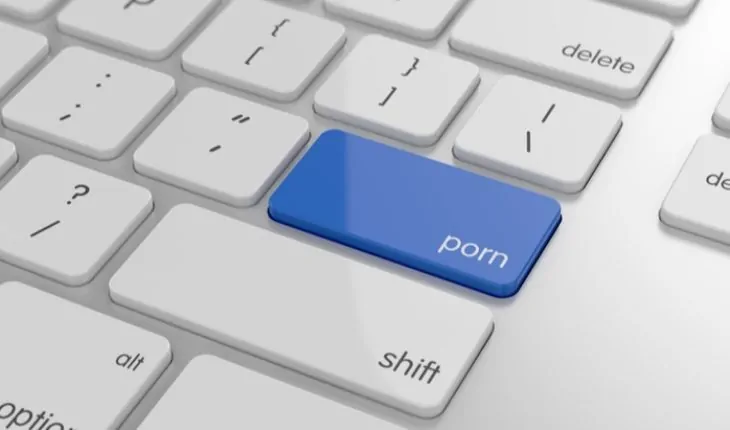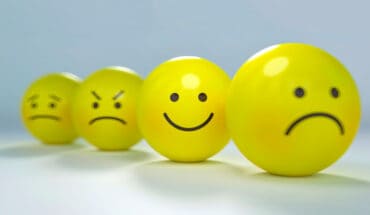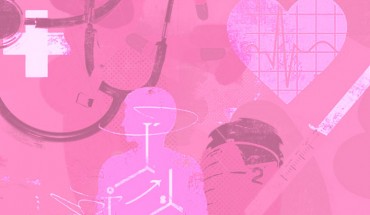As the Government pulls back from planned online porn controls, Priory psychiatrist says parents need to be prepared to talk to their children about explicit content
· Priory adolescent psychiatrist Dr Hayley van Zwanenberg offers tips to parents on how to have conversations with children
· New online porn controls would not have stopped some young people being exposed to pornographic content
· Dr van Zwanenberg says watching porn risks increasing sexually aggressive behaviour in young people
As the government drops controversial plans to make porn websites impose strict age verification rules, a Priory psychiatrist says it is important for parents to let their children know they are aware that explicit content can be unavoidable, and that they’re comfortable talking about it with them, even if they don’t feel comfortable.
Under the old plans, online users would have had to prove their age by potentially giving their passport or credit card details online. The scheme was criticised by privacy campaigners, who warned that the database of pornography users would be a hacking target for blackmailers.
But Nicky Morgan, the digital secretary, told MPs this month that age-verification measures would no longer go ahead. She said the Government’s objectives would be delivered instead through “our proposed online harms regulatory regime. This course of action will give the regulator discretion on the most effective means for companies to meet their duty of care”.
The government is still drafting a response to its consultation about the online harms white paper. The white paper indicates that companies should ensure that children cannot access inappropriate content.
Dr Hayley van Zwanenberg, child and adolescent psychiatrist at the Priory’s Oxford Wellbeing Centre, says: “A new regulatory regime will be a positive step when it comes but should not be the only supportive measure for young people.
“To minimise risks, parents need to talk openly with their children about porn, and how far this can be from healthy intimacy.
“Children normally trust their parents more than anyone or anything else, so parents are an important source of education, yet many avoid the topic.
“There is evidence that more formal education regarding online pornography in schools can also reduce the risks of objectifying women and the harmful attitudes that can develop.”
Dr van Zwanenberg said: “Exposure to porn can lead to young people believing they should imitate what they have seen and that the sexual practices they have seen, which may have contravened social norms, are what is expected of them. There is research that suggests young people who regularly watch porn are more likely to have sex at a younger age and less likely to have safe, considerate sex. The risk of non-consensual sex increases with young people capitulating to pressure from their boyfriend or girlfriend.
“There is lots of research on how porn impacts on the sexual behaviours of children, but minimal research on the emotional and mental health impacts of porn on young people. Most young people report that it can be quite shocking, it can lead to them feeling curious to find out more, and at times they may feel quite upset by it. However, as exposure to porn grows, they become desensitised or more resilient to coping with what they see.
“In my clinic I have seen some young people having sex at very young ages. These young people often have multiple sexual partners before reaching their mid-teens and demonstrate minimal emotion regarding their partners, or if a relationship ends. It concerns me that there may be a lack of empathy regarding sexual partners in young people who engage in sex at a very early age. Watching porn as a young person may also increase the risk of sexually aggressive behaviours such as slapping their partner, hair pulling and so on – and this combination is obviously concerning.”
Dr van Zwanenberg added: “Ten to 15 years ago, if young people were on the internet, they accessed it via the family computer in a communal area of the house, with their parents frequently walking past. Now young people are on the internet in their room, in the playground and for many unsupervised hours a day. Research shows that young people from as young as eight can come across porn, perhaps not through searching for it but through pop ups.”
How to talk to children about pornography. Dr van Zwanenberg says:
· Explain to them that you understand they may have come across pornography by accident or out of curiosity, that you are not cross with them, although you would prefer they do not access it again and that you do want to talk through some facts about porn
· As with many things on the internet, it is not a true representation of real life. Just as images on social media get digitally enhanced so do those in porn movies. The people who decide to engage in porn movies often have had some form of surgery to change their bodies and no young person should compare themselves to the bodies they see in porn, just as they should not to images of models on the internet
· At times porn movies shows people being aggressive to, or forceful with, each other; this is not acceptable in real life and should not be something they watch, as it can lead young people to think it is normal, when it is not
· In reality, sex is part of a loving relationship when people feel ready and comfortable to have sex, where people communicate with each other. In reality, people don’t have sex 24/7. They talk so they can engage in a loving relationship with sexual activities that they both feel comfortable with. No one should ever be made to have sexual contact in a manner that they do not want, or have sex before they feel ready
· Pornography is not a ‘how to’ guide; it generally shows the extremes of sexual behaviour, like films often show the extremes of violence or action to sensationalise things and attract viewers
· You can become addicted to porn and form the wrong views of sex and then not enjoy your own normal sexual relationships as a result. People put porn on the internet to make money, like people put films on at the cinema, they do not demonstrate real life and should not be considered part of sex education
· Consent is about protecting yourself. No means no. You should know your boundaries and understand how to make decisions, and never enter into anything that does not feel right just because someone tells you you should or because they have seen it on a porn channel
- New lipid-based pathway discovered as key to memory formation - 25th June 2025
- Crucial link could explain how Alzheimer’s takes hold - 25th June 2025
- Understanding Your Mind Can Improve Daily Life - 25th June 2025







